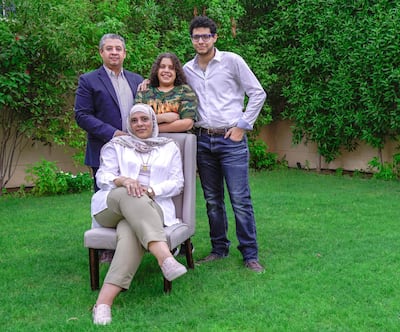There are more than a handful of reasons why Mazen Omar will be heading to a German college in September, instead of the UK, and Brexit tops the list.
For the Egyptian teenager, the uncertainty over Britain’s decision to leave the European Union, concerns over a potential economic downturn, restrictions on international students seeking employment upon graduation and even Germany’s rapidly ageing population drove him to pick the Technical University of Munich.
He said employment opportunities in the technology sector, upon completion of his computer science degree, made Germany a stronger option over the UK and Canada.
“People I spoke to, even those studying in the UK, don’t think it is the best place to work,” said Mr Omar, 18, who consulted friends, relatives and former pupils of his school, Dubai International Academy, while researching university options.
“Germany is naturally known for its education in engineering. Also once it became clear that the UK will no longer be part of the EU, I realised Germany was the best option for me.”
Another major draw was the promise of an internship that is mandatory in the final year of his three-year bachelor's degree, with an opportunity to work and study in Japan.
“This college has partnerships in Japan, where many technology companies are based, so I can do my internship and continue my studies there,” he said.
Mr Omar also reviewed the demographics of Germany’s workforce and saw an opportunity to enter the job market as a young professional.
“I noticed that in Germany the concentration of people above 60 years is high so that gives me more opportunities. In the UK, there is a higher population of younger people so there will be that many more students ready for employment after graduation.”
About 21 per cent of the German population is 65 years and older, compared to 19 per cent in France and 18 per cent in the UK, EU figures show.
Mr Omar, who is fluent in English and Arabic, is learning German and spent a month in Munster last summer studying the language.
While the UK could have been a natural fit, life in Germany will have fresh benefits, he said.
“The UK would have been much easier for me because I speak English,” said Mr Omar, who has lived in the UAE for a decade.
“But learning a new language and immersing myself in a new culture is very appealing to me. I’m interested not only in learning about computer science but also in a different way of living.”
His family shares his optimism.
His mother Sherin Hegazy has also done her homework by speaking to relatives whose children are studying in Germany.
“I feel in Germany they are giving more opportunities to students who have studied there," said Ms Hegazy, 46, an administration manager in a British school in Dubai.
“I have read about Egyptians in Germany who work in senior levels in universities, some are doctors and many are in the engineering field. I have read about the value they have added to their field and I really feel my son can be one of these people.”
Knowing there is a large community of Arabs across Germany also gives her comfort.
Ms Hegazy, her husband and their younger son joined Mr Omar for a short holiday in the country before he began the language course last year.
“I was surprised at the number of Arab people we saw,” she said.
“Germany seems to appreciate hard workers and is giving them the opportunity for residency and work. There are a lot of projects in which people can find jobs.”
The family's perception may not match the reality, however. Chancellor Angela Merkel's decision in 2015 to open the country's borders to more than one million migrants created social tension with challenges of integration and an anti-immigration rhetoric from far-right groups.
But Ms Hegazy believes assimilation would be no easier in the UK.
“I felt comfortable in Germany. I feel they respect our religion more [than the UK]," she said.
A top-rated German university, TUM is ranked among Europe’s five best technical colleges.
Mr Omar will share a flat with other students due to a long waiting list for college dormitories.

For the Bayern Munich fan, it does help that Allianz Arena, the club’s home stadium is 20 minutes from his new college.
“I’m a huge fan,” said Mr Omar, who was a defender in his school team.
“What could be better than enjoying watching my favourite team play?”



